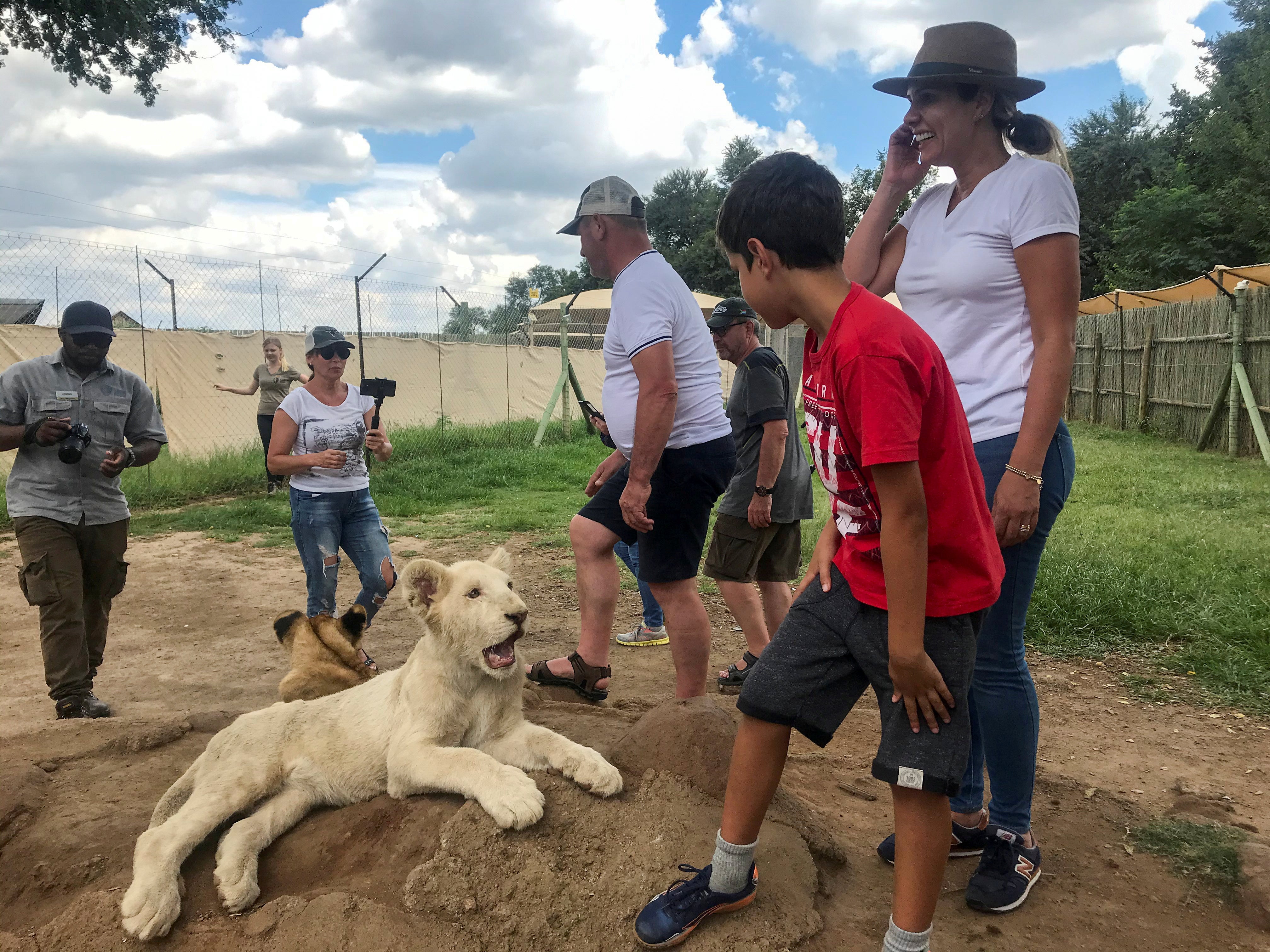South Africa to ban breeding of lions for hunting and cub petting
Minister promises to implement recommendations of report which called for restrictions on lion trade

South Africa has promised to end captive lion breeding for hunting and cub petting after a review panel warned that the practice risks the conservation of wild lions and harms tourism.
Environment minister Barbara Creecy said she would adopt all of the recommendations in the panel’s nearly 600-page report, which includes ending breeding and keeping lions for commercial gain.
The report also recommended halting the trade of lion bones, which are sold as hunting trophies, jewellery and ingredients for traditional Chinese medicine, which also threatens populations of the big cat.
At the review’s presentation, Ms Creecy said: “I have requested the department to action this accordingly and ensure that the necessary consultation for implementation is conducted”, in reference to its recommendations on captive lions.
But the review panel, which was made up of 26 people appointed by the ministry in 2019, could not themselves come to an agreement about how to tackle captive lion breeding.
Ms Creecy also stressed that she has no plans to end the hunting of wild lions.
“Preventing the hunting of captive lions is in the interests of the authentic wild hunting industry, and will boost the hunting economy and our international reputation, and the jobs that this creates,” she said.
Conservationists estimate that there are between 8,000 and 10,000 captive lions in South Africa, compared to around 3,000 wild lions. Cubs are bred on farms in the country for tourists to pet and pose with, but can end up being hunted when they grow too big to be handled.
As well as lions, the review panel was tasked with reviewing policies around leopards, rhinos and elephants. On the controversial subject of rhino horn and elephant ivory stockpiles, they recommended consulting other southern African countries to agree on a strategy for disposing of them.
Animal charity World Animal Protection described South Africa’s commitment to implementing the report’s recommendations as “a win for wildlife”.
“This latest move by the government of South Africa is courageous – taking the first steps in a commitment to long-lasting and meaningful change,” it said.
Join our commenting forum
Join thought-provoking conversations, follow other Independent readers and see their replies
Comments
Bookmark popover
Removed from bookmarks